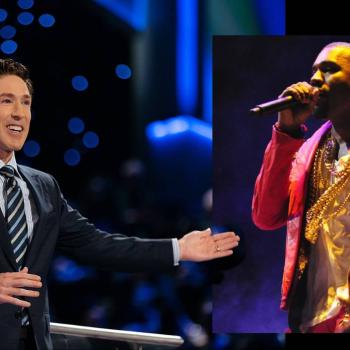Lectionary Reflections
Luke 7:11-17
June 9, 2013
Last week's column was titled "The Faith of a Soldier" and focused, as the text did, on the centurion's faith in Luke 7:1-10. This week's column is called "The Heart of the Healer." It focuses, as does this story of Jesus raising a widow's son from the dead (Lk. 7:11-17), on the compassion and the power of the healer.
The story tells us that, when Jesus approached the funeral bier, touched it, and commanded the boy to rise, "The man sat up and began to speak." Don't you wonder what he said? Maybe . . .
"Who are you?"
"What happened?"
"Now what?"
A Healing that Doesn't Mention Faith as a Factor
Last week's focus was on the supplicant's faith. In this week's healing, recounted only in Luke, there is no mention of faith at all. We encounter twenty-two healings in Luke's gospel. The role of faith is mentioned in only five of those healings.
- The Centurion's servant (7:1-10)
- The man lowered through the roof by his friends (5:17-20)
- The woman with the flow of blood (8:43-48)
- The tenth leper (17:11-19)
- The blind man (18:35-43)
Faith is implied in one healing. The demon-possessed boy's father has enough faith to ask the disciples to heal him and to be surprised and disappointed when they cannot (Lk. 9:37-49).
More than once in Luke's gospel, the demons affirm the identity of Jesus and, by their fear, announce their faith in his power to exorcize them (8:26-39; 4:40-41).
In a couple of cases, Jesus heals in surroundings where faith seems to be in short supply. He calms the sea in the face of the disciples' panic (8:22-25). He raises Jairus' daughter amid the jeers of friends and family (8:53).
A Healer Motivated by Compassion
In Luke 7:1-10, the faith of the centurion impresses Jesus and seems to be a factor that compels him to heal his servant from a distance. In Luke 7:11-17, it is the compassion of Jesus for a vulnerable woman without the support of husband or son that is the driving force. In language that foreshadows that of the Good Samaritan (another story that only appears in Luke; see Luke 10:33), Jesus "sees" the grieving widow and "has compassion on her." Anticipation heightens for the reader as Jesus says to her, "Do not weep." Then he comes forward and touches the bier while the bearers stand still. Finally, he speaks and the young man sits up.
A Healer with Power to Heal
This story identifies Jesus as Elijah's fulfillment. It shows Jesus' power to raise to new life as evidence of his divine identity. As he tells the messengers sent by John the Baptist right after this healing, "The blind receive their sight, the lame walk, lepers are cleansed, the deaf hear, and the dead are raised" (Lk. 7:22).
Luke's story is modeled on the raising of the widow's son at Zarephath by Elijah in 1 Kings 17:8-34.
Elijah in Jewish tradition is supposed to return to usher in the messianic period. Matthew and Mark both identify him with John the Baptist. Luke almost completely drops the link between Elijah and the Baptist and shows Jesus fulfilling Elijah's role. Several stories that occur only in Luke directly recall stories about Elijah. They include the disciples' desire to call down fire on their enemies (Lk. 9:54), the story of the disciple who wished to say goodbye to his family (Lk. 9:61), and only in Luke does Jesus at the beginning of his ministry deliberately compare himself to Elijah and Elisha who both had a ministry to Gentiles (Lk. 4:25-30). (Jeffrey John, The Meaning in the Miracles, 215-216)
Elijah appealed to Luke because he was a forerunner of the Gentile mission. There was also the tradition that Elijah, having been taken up to heaven, sent down his spirit on Elisha who continued his work and repeated some of his miracles. Along those same lines, in Luke, Jesus ascends and sends down his Spirit on the disciples who are empowered to do similar works to his. First and Second Kings are separated by the story of Elijah's ascension. So Luke's two-volume life of Jesus and the history of the early church is written around the fulcrum of Jesus' ascension (John, 216).
Despite these similarities between Elijah's and Jesus' rising of widow's sons, there are differences. Elijah cries aloud to the Lord, begging him to heal the boy and had to stretch himself over the boy three times. Jesus raises the man by the power of his word alone. Luke's story makes it clear that the power to raise the dead lies in Jesus' own person (John, 216). In the Elijah story, the widow's chastisement motivates Elijah to heal her son. In Luke's story, there is no mention of a request for a miracle on the woman's part. The miracle is not a response to faith (216).





